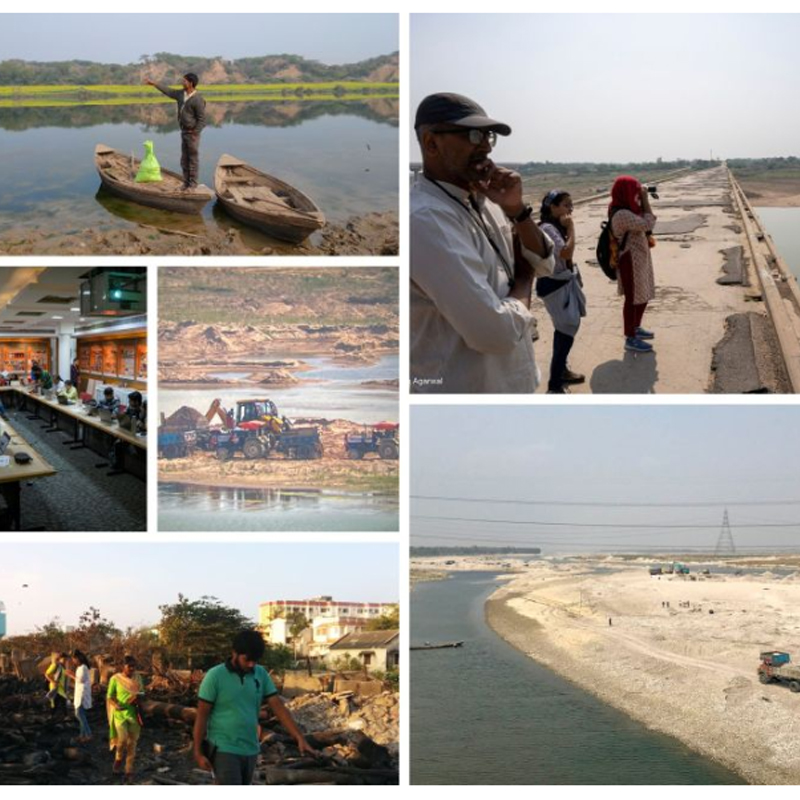 Donate
Donate

When Siddharth Agarwal first set out on foot along the banks of the Ganga, it wasn’t a protest or performance—it was a question: “What can we understand about a river, a people, a place, if we walk with it instead of flying over it?” That question has since taken him over 6,000 kilometers across six rivers, shaping an ecosystem of documentation, storytelling, and data-backed action.
As Founder of Veditum India Foundation, Siddharth has created a model of environmental engagement rooted in lived experience. Through Moving Upstream, he’s led journeys along rivers like the Ganga, Ken, and Mahakali—documenting both ecological degradation and the resilience of over 500 riverside communities.
For Siddharth, walking is more than fieldwork—it’s a way to reconnect with land, challenge extractive research practices, and build empathy. To scale this approach, Veditum launched the Moving Upstream Fellowship, training 23 researchers in ethical documentation. Fellows gather oral histories, map environmental change, and build long-term relationships with local communities. Their work feeds into films, photo essays, citizen reports, podcasts, and exhibitions. In cities like Mumbai, City Water Walks help residents trace their tap water back to its source. As one participant in Mumbai noted, “I’d never paid attention to where our water came from. This has changed how I think about every drop.”
But Veditum’s impact doesn’t stop with awareness. Its India Sand Watch initiative tackles one of the country’s most overlooked environmental crises: illegal sand mining. Using satellite imagery, field reports, and crowdsourced data, Veditum has mapped mining hotspots across India, creating an open-access dataset of over 2,500 reports.
This evidence is already catalyzing change:
“Without data, it’s easy for authorities to dismiss concerns,” Siddharth says. “But when you show patterns and visible destruction, it becomes harder to look away.” The task now is to look—and to act: use the data, share the stories, and stand with the communities fighting for their rivers and land.
Watch Sid’s INKtalk https://lnkd.in/gcYzZxND
Subscribe to our newsletters for latest updates, inspiring talks, and access to our vibrant community.